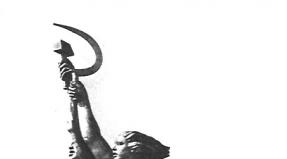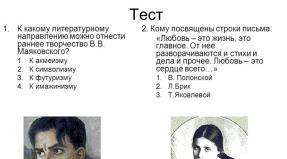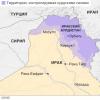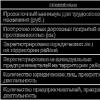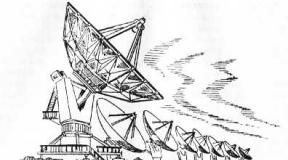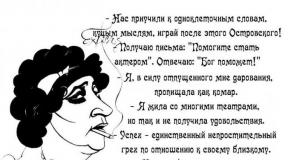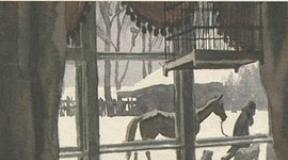It is necessary to take into account the opinion of the representative body of workers. Representative body of the labor collective. Forms of non-union representatives of workers
What is a representative body of employees, in what cases and is the organization obliged to create it?
Answer
Answer to the question:
We assume that you are interested in the representative body of workers.
The representative body of employees is the body that is empowered to represent the interests of employees. As a rule, such body is the primary trade union organization.
If an organization has two or more primary trade union organizations, a single representative body is formed. If the organization has not created a primary trade union organization, a representative body of workers may be a representative (or representative body) elected from among the workers (Article 31 of the Labor Code of the Russian Federation).
The representative body of workers is created and elected directly by the workers. The organization has no obligation to establish such a representative body.
Meanwhile, if the employer and employees intend to conclude a collective agreement (hold collective bargaining), the interests of employees must be represented by a special body: a trade union or a specially elected representative body of employees.
Details in the materials of the System Personnel:
Situation: In what cases is the organization obliged to take into account the opinion of the representative body of employees that is not a trade union
The Labor Code of the Russian Federation explicitly indicates cases when an organization is obliged to take into account the opinion of employee representatives. These representatives may be:
- other representative bodies (representatives).
At the same time, in some situations, the procedure for coordinating the decisions of the employer with the representative body is not established in the legislation (, Labor Code of the Russian Federation). In this case, the organization has the right to independently determine the procedure for taking into account the opinion of the representative body of employees and reflect it in a local regulatory document (for example, in a collective agreement). In this case, the employer has the right to use the approval procedure (depending on the decision to be agreed).
If the organization has a trade union, then when resolving certain issues, it is obliged to take into account its opinion (Article 371 of the Labor Code of the Russian Federation). The primary trade union organization represents the interests of the employees of the organization through its elected body (Articles 372, 373 of the Labor Code of the Russian Federation). In practice, such a body is the trade union committee (trade union committee).
Situation: Is the organization required to form a union??
No, you don't have to.
A trade union is considered to be a voluntary public association of citizens connected by common production, professional interests by the nature of their activities. A representative body (trade union) is created in order to protect the social and labor rights and interests of the employees of the organization. This is stated in Article 2 of the Law of January 12, 1996 No. 10-FZ. At the same time, trade unions are independent in their activities from the organization (management of the organization) (Article 5 of the Law of January 12, 1996 No. 10-FZ). The organization, when resolving certain issues, is obliged to take into account the opinion of the trade union (Article 371 of the Labor Code of the Russian Federation). In particular, this must be done when adopting local regulations (Article 372 of the Labor Code of the Russian Federation). However, such a condition must be met only if there is a trade union body in the organization (Article 8 of the Labor Code of the Russian Federation).
Thus, the management of the organization does not have the right to oblige employees to create a representative body (trade union). In turn, the employees of the organization may not have the obligation to join a trade union.
When to take into account the opinion of the trade union
The organization is obliged to take into account the opinion of the trade union:
- in other cases provided for by law .
Accounting procedure
The procedure for taking into account the opinion of the trade union when adopting local regulations includes several stages.
First, the organization sends to the trade union committee:
- a draft local regulation (for example, Regulations on wages, a collective agreement);
- justification for the project (an explanation of why it is accepted and how it takes into account the interests of employees) (part 1 of article 372 of the Labor Code of the Russian Federation). The justification can be presented, for example, in the form cover letter .
This is stated in Part 1 of Article 372 of the Labor Code of the Russian Federation.
The trade union committee must consider the draft local regulatory act and develop a reasoned opinion on it in writing. Depending on the decision made, the document may contain:
- agreement with the proposed draft local regulatory act;
- suggestions for its improvement;
- negative opinion on the draft document.
The trade union must send a motivated opinion to the employer no later than five working days from the date of receipt of the draft.
This is stated in part 2 of article 372 of the Labor Code of the Russian Federation.
Advice: In order to meet deadlines and resolve possible disputes, please register transmittal letter, motivated opinion in the logs of incoming and outgoing correspondence.
positive opinion
If the reasoned opinion of the trade union committee contains agreement with the draft local act, then the document is considered accepted, taking into account the opinion of the trade union body. At the same time, it should contain a mention that the opinion of the trade union is taken into account.
An example of the execution of a local regulatory act of the organization, taking into account the opinion of the trade union. The motivated opinion of the trade union committee contains agreement with the submitted draft document
The organization created a trade union. In January, she developed a draft regulation on wages. On January 18, the draft document and the accompanying letter were sent to the trade union committee for approval. On January 22, the Trade Union Committee sent a reasoned opinion to the organization about its agreement with the draft local regulation. The 25th of January Regulations on wages was accepted and approved by the head of the organization, taking into account the opinion of the trade union body.
negative opinion
If reasoned opinion of the trade union committee is negative or contains proposals for improving the local act, then in the specified document the trade union must substantiate its position and give an opinion on the submitted draft document. In this case, the employer may agree or disagree with the motivated opinion of the trade union.
If the organization agrees with a reasoned opinion, the head approves the local normative act in the wording proposed by the trade union committee.
If the employer does not agree with the position of the trade union committee, then he must conduct additional consultations with the trade union in order to reach an optimal solution. This must be done within three days after receiving a reasoned opinion. If, as a result of consultations, disagreements are not resolved, then a protocol of disagreements .
The employer may adopt a local regulation even if the parties do not agree. In this case, the trade union committee has the right to protect the rights of employees and appeal against the adopted document in the labor inspectorate or court.
This is stated in parts 3 and 4 of Article 372 of the Labor Code of the Russian Federation.
Appeal of a local act
An appeal against a local act in the labor inspectorate occurs in the following order. The Labor Inspectorate, having received a complaint from the trade union body, conducts an inspection within one month from the date of its receipt, based on the results of which it makes a decision. If violations of labor legislation are revealed, the inspectorate will issue an order to the employer to cancel the specified local act, which is mandatory for execution.
This is stated in part 5 of article 372 of the Labor Code of the Russian Federation.
In addition, the trade union may initiate the procedure of a collective labor dispute in the manner prescribed by Chapter 61 of the Labor Code of the Russian Federation.
An example of taking into account the opinion of the trade union when the organization adopts a local regulatory act. The motivated opinion of the trade union contains disagreement with the provided draft document
The organization created a trade union. In January, she developed a draft regulation on wages. January 18 draft document and transmittal letter were sent to the trade union committee for approval. On January 22, the Trade Union Committee sent to the organization reasoned opinion on disagreement with the draft local regulatory act. On January 25, the employer held additional consultations with representatives of the trade union, as a result of which a protocol of disagreements . Due to the fact that the parties did not come to an agreement, the organization approved a local normative act without taking into account the opinion of the trade union. The trade union decided to appeal the adopted document to the labor inspectorate.
In addition, in the manner prescribed for the adoption of local regulations, the organization must take into account the opinion of the trade union in some other cases established by law (Article 371 of the Labor Code of the Russian Federation).
Termination of the employment contract
It is necessary to take into account the opinion of the trade union if the organization, on its own initiative, dismisses employees who are its members. The employer is obliged to request the opinion of the trade union upon dismissal in connection with:
- downsizing or downsizing (clause 2, part 1, article 81 of the Labor Code of the Russian Federation);
- inconsistency of the employee with the position due to insufficient qualifications (confirmed by the results of certification) (clause 3, part 1, article 81 of the Labor Code of the Russian Federation);
- repeated non-fulfillment of work duties by an employee (clause 5, part 1, article 81 of the Labor Code of the Russian Federation);
- dismissal of employees elected to labor dispute commissions (part 3 of article 171 of the Labor Code of the Russian Federation).
The procedure for taking into account the opinion of the trade union is as follows.
The organization sends to the trade union committee a draft dismissal order and copies of the documents that are the basis for making this decision (for example, a copy of the minutes of the attestation commission - upon dismissal due to inconsistency of the employee with the position held) (part 1 of article 373 of the Labor Code of the Russian Federation).
Based on the results of consideration of documents, the trade union committee draws up a reasoned opinion in writing within seven working days and sends it to the employer (part 2 of article 373 of the Labor Code of the Russian Federation).
If the trade union agrees with the draft dismissal order, then the organization has the right to dismiss the employee no later than one month from the date of receipt of a positive reasoned opinion (part 5 of article 373 of the Labor Code of the Russian Federation).
If the trade union does not agree with the decision of the organization, then it conducts additional consultations with representatives of the organization within three working days. Based on the results of the consultations, a protocol is drawn up. If a general agreement is not reached, the head of the organization within 10 working days from the date of sending the order may approve it without taking into account the opinion of the trade union. At the same time, the trade union has the right to file a complaint against the actions of the employer with the labor inspectorate and the court. In addition, the employee can independently appeal the decision to dismiss in court.
The Labor Inspectorate, within 10 days from the date of receipt of the complaint, considers the issue of dismissal and, if it is recognized as illegal, issues a binding order to the employer to reinstate the employee at work with payment for forced absenteeism. The organization has the right to appeal against such an order in court.
This is stated in parts 3 and 4 of Article 373 of the Labor Code of the Russian Federation.
Situation: how can an organization take into account the opinion of the trade union if the procedure for such coordination is not established in the legislation (for example, when involving employees in overtime work)?
The Labor Code of the Russian Federation provides for cases when the employer is obliged to make decisions taking into account the opinion of the trade union. However, the procedure for such coordination is established only for cases:
In addition, the Labor Code of the Russian Federation mentions other cases when the organization must take into account the opinion of the trade union body. For example, for hiring employees to work overtime (parts 2, 4 of article 99 of the Labor Code of the Russian Federation). For a complete list of such cases, see table.
At the same time, the procedure for coordinating the decision of the employer with the trade union in such situations has not been established.
In this case, the organization has the right to independently determine the procedure for taking into account the opinion of the trade union body and reflect it in a local regulatory document (for example, in a collective agreement). In this case, the employer has the right to use the approval procedure provided for in Articles 372 or 373 of the Labor Code of the Russian Federation (depending on the decision to be agreed with the trade union).
Situation: in what cases is the organization obliged to take into account the opinion of the representative body of employees that is not a trade union?
The Labor Code of the Russian Federation explicitly indicates cases when an organization is obliged to take into account the opinion of employee representatives. These representatives may be:
- trade union;
- other representative bodies (representatives).
This is stated in part 1 of article 29 of the Labor Code of the Russian Federation.
The existence of another representative body (not a trade union) is possible if:
- the organization does not have a trade union;
- none of the primary trade union organizations unites more than half of the employees and is not authorized to represent the interests of all employees.
The presence in the organization of another representative body (representative) is not an obstacle to the exercise of their powers by the primary trade union organizations.
Such rules are established by part 1 of article 31 of the Labor Code of the Russian Federation.
At the same time, the Labor Code of the Russian Federation distinguishes between cases when an organization:
- must make a decision taking into account the opinion of the trade union;
- must make a decision taking into account the opinion of the representative body of employees (Article 101, part 3 of article 103, part 4 of article 135, part 2 of article 136, part 3 of article 147, part 2 of article 153, art. 159, article 190, part 3 of article 196, part 2 of article 221 of the Labor Code of the Russian Federation).
That is, in the first case, the organization must take into account the opinion of the trade union, if it is present in the organization. Moreover, if there is no trade union in the organization, and the interests of employees are represented by another representative body (authorized representative), then it is not necessary to take into account his opinion.
In the second case, the organization is obliged to take into account the opinion of the representative body of employees. That is, for example, if there is no trade union in the organization, but there is another representative body (authorized representative), then its opinion must be taken into account.
The procedure for taking into account the opinion of the representative body of employees (representative) in some cases is directly prescribed in the Labor Code of the Russian Federation (part 3 of article 103, part 2 of article 136, part 3 of article 147, article 190, part 3 of article 196 TC RF). For example, when drawing up shift schedules, the employer must take into account the opinion of the representative body in the manner prescribed by Article 372 of the Labor Code of the Russian Federation ( ) (part 3 of article 103 of the Labor Code of the Russian Federation).
At the same time, in some situations, the procedure for coordinating the decisions of the employer with the representative body is not established in the legislation (Article 101, Part 4 of Article 135, Part 2 of Article 153, Article 159, Part 2 of Article 221 of the Labor Code of the Russian Federation). In this case, the organization has the right to independently determine the procedure for taking into account the opinion of the representative body of employees and reflect it in a local regulatory document (for example, in collective agreement ). In this case, the employer has the right to use (depending on the decision to be agreed upon).
In accordance with Art. 31 of the Labor Code in cases where the employees of this employer are not united in any primary trade union organizations or none of the existing primary trade union organizations unites more than half of the employees of this employer and is not authorized in the manner prescribed by the Labor Code to represent the interests of all employees in social partnership at at the local level, at the general meeting (conference) of employees, another representative (representative body) may be elected from among the employees to exercise the specified powers by secret ballot.
The Labor Code of the Russian Federation does not impose any formal requirements on the legal personality of "another representative". Obviously, in modern conditions, employees, when electing their representatives, have the right to either empower a specific person (including a specific employee) to represent them, or form a special representative body.
The powers of another representative of employees are limited to the sphere of interaction between employees and the employer within the framework of social partnership relations. In other respects (for the protection and representation of the individual rights of workers), their rights and interests continue to be represented and protected by the relevant trade union (trade union organization).
Why do international and Russian legislation allow the representation of workers by bodies and persons not related to trade unions?
In our opinion, the main argument in favor of the existence of a mechanism for non-union representation of workers is that workers should be able to exercise their right to organize and participate in labor management even in cases where the formation of trade unions in a given society is either expressly prohibited, or made difficult by legislation that imposes overly stringent requirements for the formation of trade unions. In cases where the state legally ensures the freedom to form trade unions, the influence of non-trade union representatives of workers is minimal, which gives reason to some scientists to put forward a proposal on the need to abandon this type of representation of workers.
It seems that in modern Russian conditions there are still no grounds for this. The main reason for this is the already mentioned distrust of a significant part of society in trade unions, which is why the state should provide workers with the opportunity to be represented in collective labor relations in alternative forms to trade unions. This is precisely what explains the position of the Russian legislator, who allows the election of another representative only in cases where workers employed by a particular employer are not united in a trade union organization that meets the criteria for representativeness. This is in line with the position of the ILO.
At the same time, it is necessary to understand that the representation under consideration suffers from internal contradictions. On the one hand, another representative of workers in modern conditions, not having any organizational and legal form provided for by law, is actually a mechanical combination of separate individuals who do not have individual certainty, which makes it possible to characterize them as random coalitions in which, according to L.S. Tal, legally there is no collective as a single entity, since the coalition itself, as a general rule, is formed ad hoc, for a single specific goal, upon reaching which it breaks up, in contrast to the union, which assumes a more or less permanent existence. On the other hand, this combination of persons is granted the right of legal representation of all employees employed by the respective employer.
Such regulation, which promotes the realization of trade union rights outside the trade union system, has the right to exist only in the conditions of the weakness of the trade union movement, which is characteristic of modern Russia.
Recognizing the objective conditionality of such an approach, it should nevertheless be noted that securing the right to conduct collective bargaining and conclude collective agreements for an amorphous mass of workers who initiated the convening of a general meeting (conference) and attended it does not have a proper justification. It is necessary to agree with S. P. Mavrin and A. K. Sviridov, who propose to assign this right to a public association created at a general meeting (conference) of employees in order to exercise the right to conduct collective bargaining, conclude collective agreements and receive information about the implementation of a collective agreement . The question arises whether any public association has the right to be considered as a representative of workers, or whether we should allow the possibility of representing the interests of workers by any entities authorized by workers, including political parties.
It should be noted that before the adoption of the Labor Code, workers could only create a body of public amateur performance as an alternative to trade unions (Article 2 of the Law of the Russian Federation of March 11, 1992 No. 2490-1 "On Collective Agreements and Agreements"). It is proposed to return this regulation in our time.
A body of public amateur performance is a public association that does not have membership, the purpose of which is to jointly solve various social problems that arise for citizens at the place of residence, work or study, aimed at meeting the needs of an unlimited circle of people whose interests are related to the achievement of statutory goals and the implementation of programs of the public body. amateur performances at the place of its creation (Article 12 of the Federal Law of May 19, 1995 No. 82-FZ "On Public Associations"). This body is formed on the initiative of citizens interested in solving these problems, and builds its work on the basis of self-government in accordance with the charter adopted at the meeting of the founders.
Of course, the recognition as a non-trade union representative of workers of an exclusively public amateur performance body raises certain doubts. In particular, there is a contradiction between the rule on the creation of a body of non-trade union representation of workers at their general meeting (conference) and the establishment of a body of public initiative on the initiative of persons interested in solving specific social problems. This is due to the fact that at the general meeting (conference) of employees, decisions are always made on behalf of all persons working in the relevant organization on the basis of an employment contract. However, only in rare cases are all these persons, without exception, ready to participate in the solution of certain social problems, which is an indispensable condition for the creation of a body of public amateur performance. Certain difficulties also arise in the practical implementation of the right to create bodies of this type. Thus, the legislation does not answer the questions about who has the right to convene the relevant general meeting (conference) of employees, what are the obligations of the employer to ensure the holding of such a meeting (provision of premises, technical equipment, etc.).
Probably, in view of the presence of the above difficulties, the conclusion of collective agreements on behalf of workers by public amateur bodies was carried out extremely rarely. In those cases when the collective agreement was concluded by non-trade union representatives, then the councils of labor collectives that continued their activity since the time of the USSR, or bodies created at the initiative of the employer as an alternative to trade unions, acted as such.
Obviously, it was these circumstances that led the legislator to the actual refusal to formalize the legal personality of another employee representative. However, such a decision cannot be considered fair, since in this case we must come to the conclusion that in fact "another representative of workers" is the labor collective, which contradicts the conclusions we made in subparagraph 2.2.1.
Of all the organizational and legal forms of public associations provided for by the Federal Law "On Public Associations", the most adequate in terms of their characteristics for determining the legal form of a non-trade union association of workers is, after all, a body of public amateur performance. At the same time, a body of public amateur performance can also be created by a group of workers, even the smallest one, but it receives the status of a representative of workers only if it is formed by a general meeting of workers or their conference held on the basis of meetings in subdivisions of the organization. At the same time, the question of determining the circle of founders of the body of public amateur performance remains open, since the election of a representative of employees is carried out by secret ballot, excluding the definition of personalities who voted for this decision. However, the general meeting (conference) of employees can be considered as a special case of the meeting of the founders of a public amateur body, which receives the status of a representative of all employees employed by the relevant employer, by virtue of the law.
Obviously, in order to avoid possible abuses on the part of employees, the employer should be given the right to check the legality of the decision made on the election of a representative of employees and demand that it be declared invalid in court.
Since the activity of the body of public amateur performance is aimed at solving various social problems that arise for citizens at their place of work (place of creation of this body), it seems logical that it is formed from among the workers who participated in its creation. This does not in any way affect the ability to represent the interests of workers in the conduct of collective bargaining and the resolution of collective labor disputes by trade union organizations, therefore it is impossible to agree with T. L. Soshnikova, who proposes to exclude the words "from among the workers" from the last sentence of Part 1 of Art. 31 TK .
Since the creation of a body of public amateur performance is impossible without the formation of its charter, this will significantly streamline the organization of its activities, ensure the rights of employees' representatives, since it is possible to establish clear rules in the charter for terminating the powers of a representative body, changing its composition, the procedure for making decisions and reporting to workers.
Article 31 of the Labor Code gives another employee representative the right to represent the interests of all employees in social partnership at the local level. At the same time, other provisions of the Labor Code that regulate relations on the participation of employee representatives when the employer makes managerial decisions as part of the procedure for taking into account the opinions of employee representatives establish different competences for the elected body of the primary trade union organization and the representative body of workers, which may also be the elected body of the primary trade union organization.
Thus, the employer must take into account the opinion of the representative body of employees, for example, in the following cases:
- - establishing the procedure for attestation (Article 81 of the Labor Code);
- - determination of the list of workers with irregular working hours (Article 101 of the Labor Code);
- - drawing up shift schedules (Article 103 of the Labor Code);
- - establishment of a wage system (Article 135 of the Labor Code);
- - approval of the form of the payslip (Article 136 of the Labor Code);
- - the establishment of specific amounts of increased wages for hard work, work with harmful and dangerous conditions (Article 147 of the Labor Code);
- - the establishment of specific amounts of payment for work on a weekend or non-working holiday (Article 153 of the Labor Code);
- - the establishment of specific amounts of additional payments for work at night (Article 154 of the Labor Code);
- - definition of labor rationing systems, introduction, replacement, revision of labor standards (Articles 159, 162 of the Labor Code);
- - approval of the internal labor regulations (Article 190 of the Labor Code);
- - determination of the forms of training and additional professional education of employees, the list of necessary professions and specialties (Article 196 of the Labor Code).
At the same time, taking into account the opinion of the elected body of the primary trade union organization, the following is carried out:
- - the introduction and cancellation of the period of the part-time regime with the threat of mass dismissal due to changes determined by the parties, the terms of the employment contract (Article 74 of the Labor Code);
- - involvement of employees in overtime work, work on weekends and holidays in addition to the grounds specifically stipulated in the law (Articles 99, 113 of the Labor Code);
- - the establishment of a regime for dividing the working day into parts (Article 105 of the Labor Code);
- - determination of the amount and procedure for paying remuneration for work on a non-working holiday (Article 112 of the Labor Code);
- - the establishment of additional holidays (Article 116 of the Labor Code);
- - approval of the vacation schedule (Article 123 of the Labor Code);
- - taking measures to prevent mass layoffs (Article 180 of the Labor Code);
- - establishing the procedure for applying the rotational method (Article 297 of the Labor Code);
- - an increase in the duration of the watch up to six months (Article 299 of the Labor Code);
- - approval of the work schedule with a rotational method (Article 301 of the Labor Code);
- - establishment of an allowance for a shift method of work (for employers who are not related to the public sector) (section 302 of the Labor Code);
- - establishing the amount, conditions and procedure for compensating expenses for paying the cost of travel and baggage transportation when using leave by employees employed by employers located in areas of the Far North that are not related to the public sector (Article 325 of the Labor Code);
- - establishing the amount, conditions and procedure for compensating expenses associated with the relocation of employees employed by employers located in areas of the Far North that are not related to the public sector (Article 326 of the Labor Code);
- - establishment of specific features of the regulation of the work of athletes and coaches (Article 348.1 of the Labor Code).
Finally, when developing and approving the rules and instructions on labor protection (Article 212 of the Labor Code), establishing the norms for the free issue of special clothing, special footwear and other personal protective equipment to workers, which improve the protection of workers from harmful and harmful substances in the workplace compared to standard norms. (or) dangerous factors, as well as special temperature conditions or pollution (Article 221 of the Labor Code), the employer takes into account the opinion of the elected body of the primary trade union organization or another body authorized by employees.
Such legislative discord defies any reasonable explanation. There is a need to unify the approach to determining the scope of the rights of certain representatives of workers. And since workers in collective labor relations at the level of a particular employer can be represented not only by a trade union, but also by another representative, the employer should be obliged to consult precisely with the representative body of workers. A trade union organization operating at a given employer that meets the criteria or requirements for representativeness in collective bargaining can also act as a representative body of workers. The legislator should establish an inextricable link between the right to participate in collective bargaining and the right to participate in consultations when the employer makes managerial decisions (procedures for taking into account the opinion of a representative of employees), since Art. 31 of the Labor Code assumes that another employee representative is elected to represent all employees, not only in collective bargaining, but also in other respects that the legislator classifies as social partnership.
In countries with a traditional market economy, non-trade union representative bodies of workers generally function along with trade unions, which is to a certain extent due to the fact that in these countries, mainly sectoral collective agreements have traditionally been developed. The absence or insufficient development of collective bargaining regulation of labor at enterprises has led to the fact that the vacuum was filled by representations of workers (enterprise personnel). In those states where the trade union movement is more active at the grassroots level, such bodies practically do not function (for example, in the USA, Japan).
The specific forms of organization and functioning of representative bodies of labor collectives vary from country to country. In some countries there is only one representative body of the collective (Germany, Austria), in others (France, Luxembourg), two representative bodies function at enterprises: a representative body of the labor collective and a bilateral body in which representatives of the collective and administration, as well as trade unions (with advisory vote). There are countries where, along with the trade union, bilateral bodies of personnel representation have been legalized at enterprises, i.e. bodies in which representatives of workers and administration participate on an equal or other basis (Belgium, Denmark, Norway, Israel).
The powers of representative bodies of enterprise collectives affect three main areas of management: economic; the disposal of the workforce (personnel issues); social services for employees. These powers include the right to information; the right to consultation (the right to discuss the actions of the administration and propose alternative solutions); the right to participate in the decision (prior consent of the labor representation body or, in certain cases, the right of veto); authority to manage social institutions at the enterprise. The scope of these rights is different in each country, but the common thing is that the representative bodies of labor collectives have the greatest rights in dealing with personnel issues, in the management of social institutions, and the least in relation to technical and economic problems. The costs associated with the activities of non-trade union bodies representing employees are borne by the employer.
The most indicative in this respect is the legal status of works councils in the FRG, which operate on the basis of the Law of January 15, 1972, "On the Constitution of the Enterprise." Councils are elected in enterprises that typically employ five or more permanent employees, of which three may be elected to the council. Employees who have reached the age of 18 have the right to elect the company's council.
Members of the enterprise council perform their functions free of charge as an honorable duty. They are released from their work in the enterprise with the preservation of wages to the extent necessary (taking into account the size and nature of the enterprise) for the successful implementation of their public functions. Public activities of a member of the enterprise council outside of working hours are compensated by paid time off within the next month. If the provision of time off is not possible due to the requirements of production, the social activities of a member of the council of the enterprise are paid as overtime work.
The entrepreneur provides the company council with the premises and office equipment necessary for its daily work. He must meet with the plant council at least once a month. The entrepreneur and the company council should discuss issues of interest with a sincere desire to reach agreement and resolve emerging differences of opinion, refrain from actions that could damage the production process and undermine the working world in the enterprise. Labor struggle between them is unacceptable.
The powers of works councils include: setting the start and end times of the working day and breaks in work, the mode of the working week; temporary reduction or increase in working hours; determination of the place and frequency of payment of wages; scheduling vacations; the introduction and use of technical means by which the behavior of employees and the results of their work are supervised; organization of work to prevent accidents at work and occupational diseases; health protection of employees; organization of vocational training at enterprises; management of social institutions; determination of the principles of personnel selection; distribution of housing; regulation of the rules of behavior of employees; establishment of production standards, criteria for the introduction of new methods of remuneration, the amount of bonuses; development of principles for organizing work on the collection of rationalization proposals.
Works councils of enterprises with more than 20 employees have additional rights in the field of hiring, firing and relocating workers. These rights consist in the right to demand information from the entrepreneur and in the possibility of vetoing (in the cases listed by law) on the decision of the administration. In the event of a dispute, the final decision is made by the court.
With regard to the economic, financial, as well as technical aspects of the enterprise, in particular, changes in its production profile, structure, introduction of new technology, the works council has only the right to demand information and express its opinion. It is optional for the entrepreneur who owns the final decision.
In the Russian Federation, the need to create works councils in order to expand the participation of employees in the management of organizations was stated by Decree of the President of the Russian Federation of May 7, 2012 No. 597 "On measures to implement state social policy." When implementing such a position, the production council could act as another representative (representative body) of workers specifically on production issues, subject to a decision on its election at a general meeting (conference) of workers and non-interference in the powers of trade unions, as rightly pointed out by T. A Izbienova.
However, the Federal Law of May 7, 2013 No. 95-FZ "On Amendments to Article 22 of the Labor Code of the Russian Federation" considered the formation of a production council to be an employer's right (with the exception of employers - individuals who are not individual entrepreneurs).
This advisory body is formed from among the employees of this employer, who, as a rule, have achievements in work. Its powers include the preparation of proposals for the improvement of production activities, individual production processes, the introduction of new equipment and new technologies, the increase in labor productivity and the qualifications of employees. Specific powers, composition, procedure for the activities of the works council and its interaction with the employer are established by a local normative act. The powers of the production council cannot include issues, the solution of which, in accordance with federal laws, is assigned to the exclusive competence of the management bodies of the organization, as well as issues of representation and protection of social and labor rights and interests of employees, the solution of which, in accordance with the Labor Code and other federal laws, is attributed to competencies of trade unions, relevant primary trade union organizations, other representatives of employees.
Since the workers themselves do not make any decisions when forming the works council, it cannot be considered as a representative of the workers.
The idea of a special representation of workers at the level of an economic unit has been accepted at the pan-European level.
All undertakings or groups of undertakings operating throughout the European Community establish European Works Councils, whose activities are currently regulated by Directive No. consultations with them (new version)", which was adopted on May 6, 2009.
The European Works Council may be initiated by at least 100 employees or their representatives from at least two undertakings or organizations located in at least two different Member States of the European Union, or by the undertaking's central governing body.
The European Works Council consists of the employees of an undertaking or a group of undertakings operating throughout the European Union, elected or appointed from among the employees' representatives or, in their absence, from among the employees themselves. The members of the European Works Council shall be elected or appointed in proportion to the number of employees of an undertaking or group of undertakings operating on a Community scale employed in each of the Member States of the European Union. At the same time, each member state of the European Union is allocated one place for employees employed in this state, whose number is 10% or part of the total number of all employees employed in all member states of the European Union in aggregate. The election or appointment of the members of the European Works Council is carried out in accordance with national legislation and/or practice.
In order to ensure the coordination of its activities, the European Works Council forms from among its members an elected committee, which has no more than five members, who enjoy conditions that allow the committee to carry out its activities on a regular basis.
The European Works Council has the right to meet once a year with the central governing body of an enterprise, to receive information and consult with it on the development of the activities and prospects of an enterprise or group of enterprises operating throughout the European Union, on the basis of a regular report drawn up by the central governing body. The elected committee, and in the absence of such, the European Works Council, has the right to be informed in the event of exceptional circumstances or measures that seriously affect the interests of workers, in particular in the event of relocation, disposal, closure of enterprises and institutions, as well as in the event of massive staff reductions . For the purpose of obtaining information and consulting under such circumstances or measures, the elected committee may arrange, at their request, a meeting either with the central governing body or with another more appropriate level of management authorized to make independent decisions within the enterprise or group of enterprises operating on a scale Communities.
Kiselev I. Ya. Decree. op. pp. 244–245.
The representative body of employees is very important for large enterprises that not only work to increase profits and economic growth of the company, but also take care of their subordinates. At the same time, the organization of such associations requires knowledge in the legislative branch, because it is this body that should take part in the preparation of some of the enterprise's regulatory acts.
Each enterprise is interested in the absence of regulatory bodies on its doorstep. Carrying out various kinds of inspections, ranging from fire safety to financial statements, involves the possible identification of intentional and unintentional inconsistencies with legislative norms. Internal documents, which are developed by the enterprise independently, in some matters must take into account the opinion of employees represented by representative bodies. Provided that such a body exists in the company.
The essence of the representative body

The representative body is often called a trade union, in essence it can be a representative of labor personnel or an association of representatives, possibly from different departments or divisions.
At the legislative level, the activities of trade union organizations, their rights and obligations are regulated by the Federal Law “On Trade Unions, Their Rights and Guarantees of Activities”.
Sometimes the representative body and the trade union are identified, but this is not quite the right understanding. Trade unions represent the interests of all workers in the enterprise as a whole, and a representative body is created in the absence of the first or when the trade union does not express the interests of all workers. In the latter case, the existence of two organs is possible.
At the same time, various articles of the Labor Code contain norms that take into account the opinion of the trade union or the representative body, or the choice of both. But these bodies of workers are not interchangeable, while trade unions have more powers.
 Employees of the enterprise independently decide whether to create such an association or not. In case of use by the labor collective of the right to form a trade union, it is necessary to follow a certain procedure.
Employees of the enterprise independently decide whether to create such an association or not. In case of use by the labor collective of the right to form a trade union, it is necessary to follow a certain procedure.
The first stage is important, which involves the organization of a general meeting, which must be attended by all employees or most of them, which will be enough for a quorum. For large enterprises, the presence of a representative of branches or divisions at such a meeting will be sufficient. It is important that the elected employees attend the meeting in the amount of at least 2/3 of the elected representatives.
At the meeting, a candidate is nominated who will be acceptable to the labor staff and will be able to defend his interests before the company's management. Then there is a secret ballot for one of the candidates. After the votes are counted, the candidate with the standard 50% + 1 vote wins. The voting process and its result must be recorded, for which a secretary is preliminarily elected.
From the history of trade unions
In England, at the end of the 18th century, the first trade unions began to appear. Their goal was to improve the working conditions of the working staff. This association gained momentum and gradually appeared in the USA, France, Germany and other European countries.
 Entrepreneurs were dissatisfied with such a movement. Basically, the demands of the trade unions concerned wages, which inevitably affected the fixed costs of entrepreneurs and a decrease in profits. In order to reduce the pressure of the trade unions on the management, employees who joined and supported this movement were often fired.
Entrepreneurs were dissatisfied with such a movement. Basically, the demands of the trade unions concerned wages, which inevitably affected the fixed costs of entrepreneurs and a decrease in profits. In order to reduce the pressure of the trade unions on the management, employees who joined and supported this movement were often fired.
They tried to suppress the trade union movement in the United States and at the state level. The year 1890 was remembered for the appearance of a legislative act that equated this movement with a criminal conspiracy. Years later, trade unions were legalized, although for a long time they were not perceived as legal in enterprises, especially during strikes and boycotts of workers.
In Russia, the appearance of the first trade union was recorded in 1905 after the revolution. Simple associations of workers have changed their format of action and form of activity. In the same year, the first legislative acts appear that regulate such movements for enterprises in specific sectors of economic activity. With the advent of the First World War in Russia, bans on trade unions were created, after it all the bans were lifted.
Competence of the representative body
The Labor Code provides for the adoption of certain decisions and the approval of local regulations only in tandem with representatives of the team.
Local labor acts mean internal documents that are developed specifically for the enterprise in accordance with labor legislation. This includes various kinds of job descriptions, internal regulations, remuneration system, certification documents, etc.
The opinion of the representative body of employees is taken into account in a standard manner in accordance with the procedure prescribed by law. When drawing up a new internal document by the administrative staff, which requires listening to the opinion of the delegate of the workers' bodies, it is enough to provide a draft version of this document and its justification to the trade union.
Upon receipt of the draft proposed document, the Workers Delegate has 5 days to process it and offer their own comments on the document. All comments or positive opinions that have arisen must be stated in writing, motivating your arguments. When the opinions of the employer and the trade union on the proposed project differ, within 3 days you can discuss the points that do not suit the parties, and come to a compromise, and then approve the document.
If agreement between the parties is not reached, this must be recorded. After that, the employer can accept the developed regulatory document at the enterprise. In this case, representatives of employees have the right to appeal against the adopted document in court or in the labor inspectorate.
Employees of the enterprise who are directly involved in the trade union have the right to be released from work with the preservation of average earnings for the period of fulfillment of trade union obligations. During this period, such an employee cannot be fired or transferred to another position.
Many large companies are often themselves interested in creating and supporting a trade union body. Such a body of employees creates a good reputation for the enterprise, since it automatically implies an attentive and loyal attitude towards the staff. The trade union realizes the need for personnel to communicate and protect their own rights before the administration of the company.
Question:
Is it necessary to have an employee representative body in the organization? If there is no such body in the organization, is it possible to impose on the employer any responsibility for its absence?
Answer:In accordance with Art. 52 of the Labor Code of the Russian Federation (hereinafter referred to as the Labor Code of the Russian Federation), employees have the right to participate in the management of the organization directly or through their representative bodies. This right is regulated by the Labor Code of the Russian Federation, other federal laws, the constituent documents of the organization, the collective agreement.
The main forms of participation of employees in the management of the organization, according to the first part of Art. 53 of the Labor Code of the Russian Federation are:
- taking into account the opinion of the representative body of employees in cases provided for by the Labor Code of the Russian Federation, the collective agreement;
— holding by the representative body of employees of consultations with the employer on the adoption of local regulations;
— participation in the development and adoption of collective agreements.
The interests of employees in collective bargaining, concluding or changing a collective agreement, exercising control over its implementation, as well as in exercising the right to participate in the management of the organization, consideration of labor disputes between employees and the employer are represented by the primary trade union organization or other representatives elected by employees (part two of Art. 29 of the Labor Code of the Russian Federation).
Actually, it is they who are meant by the representative bodies of workers.
At the same time, it should be taken into account that association, including the creation of trade unions and entry into them; participation in the management of the organization; collective bargaining and the conclusion of collective agreements and agreements through representatives are the rights of employees (part one, article 21 of the Labor Code of the Russian Federation). In accordance with the second part of Art. 8 of the Labor Code of the Russian Federation, the employer is obliged, when adopting local regulations, in certain cases, to take into account the opinion of the representative body of employees only if it exists. Thus, if there is no corresponding body in the organization, the employer does not have the right to form it from among the employees on his own initiative. Therefore, the absence of a representative body in the organization is not a violation of labor legislation and does not entail the application of any measures of responsibility to the employer. The absence of this body does not also mean that the employer is not entitled to adopt local regulations that require coordination with the representative body, if any.
At the same time, if such a body is created by employees, the employer will be obliged to create conditions that ensure the activities of employees' representatives, in accordance with labor legislation, a collective agreement, agreements (Article 32 of the Labor Code of the Russian Federation), as well as perform other duties related to the presence in organization of a representative body of employees, in particular, take into account its opinion in cases provided for by the Labor Code of the Russian Federation, other federal laws and other regulatory legal acts of the Russian Federation, a collective agreement, agreements (part two of Article 8 of the Labor Code of the Russian Federation).
Thus, holding an employer accountable for violating labor legislation may not be due to the absence of a representative body of employees in the organization, but to the employer’s failure to fulfill the obligations assigned to it in accordance with the law (to create conditions that ensure the participation of employees in the management of the organization, taking into account the opinions representative body in the cases provided for this, conducting collective bargaining, concluding a collective agreement, etc.) if such a body is created at the initiative of employees.
